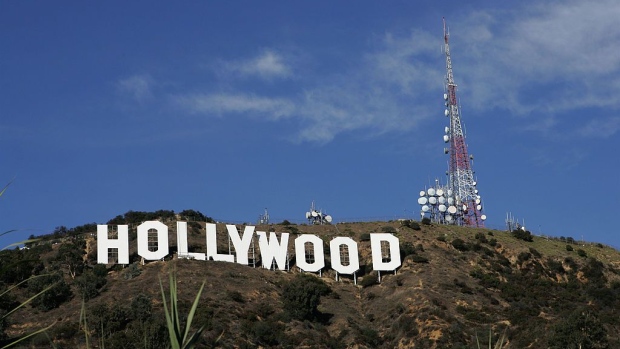Jun 26, 2019
The Next Silicon Valley Is … Los Angeles?
, Bloomberg News

(Bloomberg Opinion) -- I was in San Francisco last week, and most of my conversations eventually turned to the same topic: Could some other region supplant the Bay Area as America’s tech hub? San Francisco, after all, has sky-high rents and taxes — not to mention dirty streets, unpleasant strip clubs and numerous homeless. The towns of Silicon Valley are more livable than San Francisco (though rents are still high), but they are dull and not ideal for attracting highly educated young singles.
I have a nomination for a potential rival for America’s main tech hub: Los Angeles. Increasingly, I am beginning to wonder whether the Bay Area’s position is truly secure.
First, consider the virtues of the Los Angeles area. It has splendid weather — warmer and sunnier than San Francisco — and a deep pool of talent. It is America’s second-largest city, with many nice neighborhoods to choose from (some of them, to the east, even affordable). It even has a subway, albeit an underdeveloped one. I would argue it has much better food, and of course a much larger and more diverse entertainment scene. You might reasonably conclude that top talent might prefer to live in or near Los Angeles rather than the Bay Area.
Southern California already has produced some important startups, including Snap, SpaceX and Tinder. No, they haven’t come close to the impact of Google or Facebook, but they show that a tech scene can develop. Caltech, USC and UCLA are not the equal of Stanford, but still they provide a powerful talent base, and Stanford remains not so far away.
How could L.A.’s tech scene develop even further? Imagine that virtual reality is the “next big thing” and the gamification of just about everything, including education, proceeds apace. For the next generation of startups, that might throw the balance of power in the direction of expertise in entertainment and design — a sense of the theatrical, in other words, intermediated through tech. That could favor the culture of Los Angeles and Hollywood. Southern California also has a strong background in aerospace and military contracting, two areas that could produce a spillover effect for the next tech booms, especially if they involve transportation. The region also remains the leading U.S. manufacturing center, and that too could be a source of future synergies.
Of course, it is unlikely that Google, Facebook or Apple would leave the Bay Area. But over some time horizon they will take on less relative importance. They may become legacy companies that cease to innovate, or they may face legal and regulatory pressures and penalties. That would open up room for Southern California to be the leader for the next generation of tech companies.
One huge advantage for Southern California, compared to say New York City or Austin, Texas, is simply that it is so close to Northern California. If you want to set up meetings with Silicon Valley titans, or lure talent to move, the Los Angeles area is a pretty good base of operations in terms of proximity and ease of access.
Northern California had an original advantage over Southern California as a center of free thinking and thus as a tech hub. Think back to Haight-Ashbury, the 1960s, Beatniks, LSD and the Whole Earth Catalog, the psychedelic movement, the bohemian and gay cultures of San Francisco. All of that bred an atmosphere of rebellion, and it helped birth the personal computer and a large movement of non-conformist hippie programmers, often working out of their proverbial garages.
But those cultural roots have largely faded, and if anything today San Francisco and the Bay Area are better known for political correctness and a conformist culture of scolding and groupthink. That can’t be good for the region’s long-term creativity.
Traffic is a big problem for Los Angeles, but the same goes for San Francisco, where it seems to get worse each year. And an underrated benefit of Southern California is that travel is usually more predictable (if slower) on the surface roads than on the freeway. At any rate, some of L.A.’s tech companies are already clustering between LAX and Santa Monica, for (relatively) easy access to each other. You can imagine other companies moving further south or further east to enjoy different intellectual micro-climates, and perhaps for more space and cheaper rents.
Oh, and did I mention that Peter Thiel moved his operations to the Los Angeles area last year? Thiel, the venture capitalist who was one of the founders of Paypal, helped to discover and mobilize Mark Zuckerberg, Reid Hofmann and Elon Musk. He was also one of the first major business leaders to recognize the importance of Donald Trump.
I’m not yet sold on the idea of Los Angeles displacing the Bay Area. But I’m seeing more signs pointing in that direction.
To contact the author of this story: Tyler Cowen at tcowen2@bloomberg.net
To contact the editor responsible for this story: Michael Newman at mnewman43@bloomberg.net
This column does not necessarily reflect the opinion of the editorial board or Bloomberg LP and its owners.
Tyler Cowen is a Bloomberg Opinion columnist. He is a professor of economics at George Mason University and writes for the blog Marginal Revolution. His books include "Big Business: A Love Letter to an American Anti-Hero."
©2019 Bloomberg L.P.





